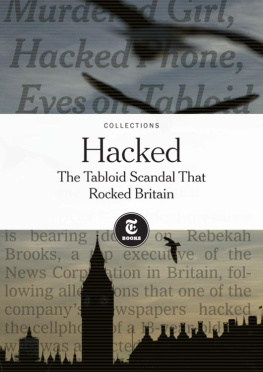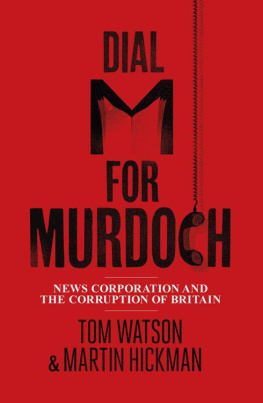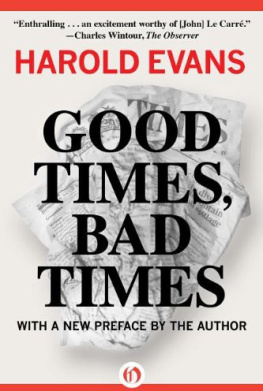In the history of scripted political/PR one-liners it did not rank among the greats.
Rupert Murdoch was sitting, hunched and defensive , behind a nondescript desk in a parliamentary committee room. It was a stifling July day in 2011. Before him, seated in horseshoe formation, were the cross-party members of the Commons Culture, Media and Sport Committee. Behind him, alongside Murdochs various lawyers and minders, sat his wife Wendi Deng, conspicuous in a salmon-coloured jacket amid a sea of charcoal-grey suits.
The chief executive of News International and the man who had launched the Sun looked not merely old, but ancient blinking into the light like a befuddled Australian Yoda, tiny, stooped and indignant, his cloudy eyes scowling behind his glasses. The edges of his mouth inclined downward but his eyebrows were upturned, and from moment to moment he radiated discomfort, irritation, befuddlement, studied vulnerability and injured dignity. The hunch was so severe that at points during the hour to come he would look as though he were actually crouching defensively behind the table, his head barely visible above the parapet.
His son, James, who sat by his side in a protective display of filial solidarity, was trying to make a statement on behalf of the old man, deflecting the bullets and when appropriate gallantly throwing himself into the line of fire, like a human sandbag ready to smother any well-aimed hand grenades.
First, James announced, I would like to say just how sorry I am, and how sorry we are, to particularly the victims of illegal voicemail interceptions and to their families. It is a matter of great regret to me, my father and everyone at News Corporation that
But as James tried to finish his entirely bloodless apology, Murdoch Senior interrupted grouchily: Before you get to that I would just like to say one sentence There was a dramatic pause, and then Murdoch delivered his punchline:
This is the most humble day of my life.
The sound-bite was duly used by all the TV bulletins and was run pretty much in a continuous loop on Sky News, the TV station which he effectively ran, and it was reproduced in gigantic type on the front page of his main newspaper, the Sun, the next day, together with a cut-out picture of Rupert looking contrite, almost tearful. It was rare to see Murdoch on the defensive in this way; but even in these difficult circumstances the amount of influence he could bring to bear upon the national psyche through his media outlets was remarkable. The Times once the objective journal of record, now a key prop in the Murdoch empire was nakedly partisan, openly using its front page not to report the news of the day but to give the case for the defence as the paper put it, on behalf of its owner.
Murdoch had kept out of the public eye in recent decades, his growing political and commercial might exercised well away from the public gaze. This strategy made a lot of sense. His lifelong plan to move from his origins in the backwater of Australia (via the launchpad of London) to become a player on the world stage called for a degree of anonymity. The Sun and News of the World had for half a century been the cornerstone of his empire, the source of ready cash and profits that had fuelled his move first into British and then American and Chinese pay television. But gradually the newspapers had become a liability evolutionary baggage, like the appendix in the human bowel, once vital but now next to useless and full of accumulated detritus. His tabloid reputation had become an especial handicap in the US, where, in 2007, it had nearly sunk his bid to acquire the Wall Street Journal. (The real attraction of the Journal to Murdoch, critics proposed, was the fact that it published the Dow Jones index, the worlds most influential stock market price tracker. The Dow by its movements up and down as recorded by the Wall Street Journal could add or remove billions from the balance sheets of companies around the world.)
A few days before Murdochs appearance at the session of the Commons Culture, Media and Sport Committee, the leaders of all Britains political parties claimed that Murdoch used the power of his newspapers in Britain to such devastating political effect that they believed he could end their careers if they regulated against his business interests. The Sun had made Rupert Murdoch a political power in Britain. It was not that he could dictate policy as he pleased. But it was widely believed that Murdoch had an effective veto on any policy that might negatively affect his business empire. In America the question was asked at the time of the Wall Street Journal takeover in 2007: should a man who used his British tabloids to openly intimidate and manipulate the political process in Britain for his own commercial ends be allowed to control such a vital part of the infrastructure of the world economy as the Dow? The merger went ahead anyway.
But now, in July 2011, attention was back on the source of Murdochs financial and political power his British tabloids. In the middle of the crisis the former owners of the Wall Street Journal popped up to declare that, had they known at the time what Murdoch was really like, they would never have sold the paper to him. The tabloids the inflamed appendix of Murdochs empire had suddenly burst and now threatened to poison the whole body.
The crisis was precipitated by reports from the Guardian newspaper that the News of the World - the paper which had paved the way for the launch of the Sun and all that followed from that hired detectives to hack the mobile phone of Milly Dowler, the Surrey teenager abducted and murdered in 2002. This story touched a raw nerve and inspired a wave of revulsion against the tabloids not seen since the Sun had been burnt in the streets on Liverpool after its THE TRUTH headline reporting the Hillsborough disaster. In the wake of THE TRUTH the Suns circulation had gone to zero in Liverpool, but sales had recovered in the rest of the country. (Kelvin MacKenzie even joked that the loss of sales in Liverpool had been more than made up by extra sales to White Van Man in London and the south, and that the decision to run the headline had been a commercial success overall.)
The Milly Dowler affair, in contrast, affected the whole country and did not look like going away. The News of the World had become a toxic brand. After advertisers withdrew, and with the certain knowledge within News International that this was merely the tip of an iceberg of phone-hacking and worse payments to the police that might be considered a form of bribery, Murdoch decided to close the paper in an attempt to save the rest of the empire.
And so he sat in front of the Committee, projecting a vulnerable, put-upon demeanour, with James protecting him from most of the flak. The committees chair John Whittingdale started off by talking about a 2009 parliamentary report into press standards which had dealt with phone hacking at the News of the World. At that point News International had said that only one reporter had been involved in the practice. Said reporter had been caught, the paper said, and sacked. The argument was that one bad apple did not spoil the whole barrel. Whittingdale said that he had been sceptical about this at the time. It had been inconceivable that only one reporter had been involved.
Since then the Guardian journalist Nick Davies had revealed that thousands of phones had been hacked, and that News Corporation had at first been making gigantic legal payments to buy the silence of victims. Worse than this, the police had allegedly been involved in covering up illegal types of phone hacking and surveillance. Nobody really knew how big the network of criminality and corruption was, but it involved far more than the work of one rogue reporter. The question troubling the committee was just how far up the chain of command the illegality went.

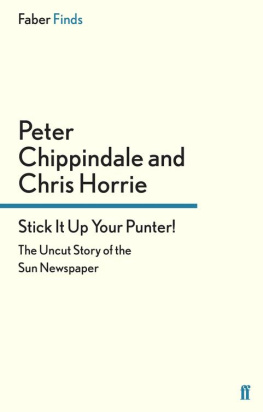

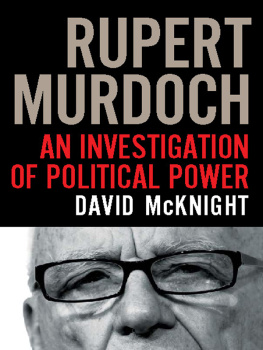
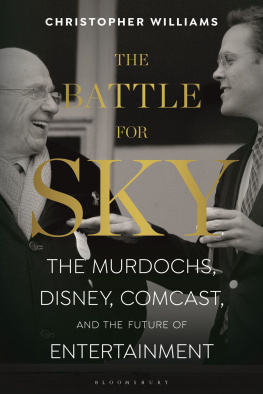
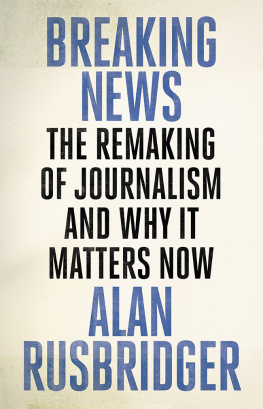
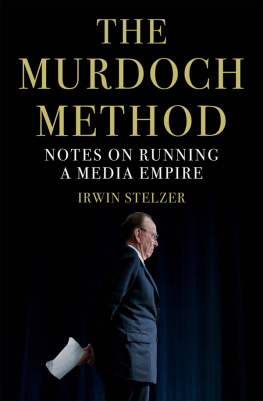
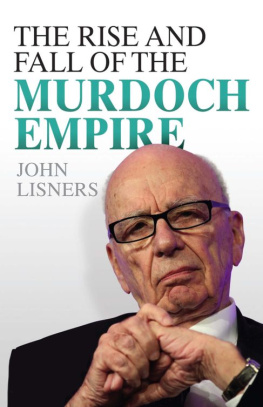
![Greenwald Robert - Outfoxed : [Rupert Murdochs war on journalism]](/uploads/posts/book/99754/thumbs/greenwald-robert-outfoxed-rupert-murdoch-s-war.jpg)
